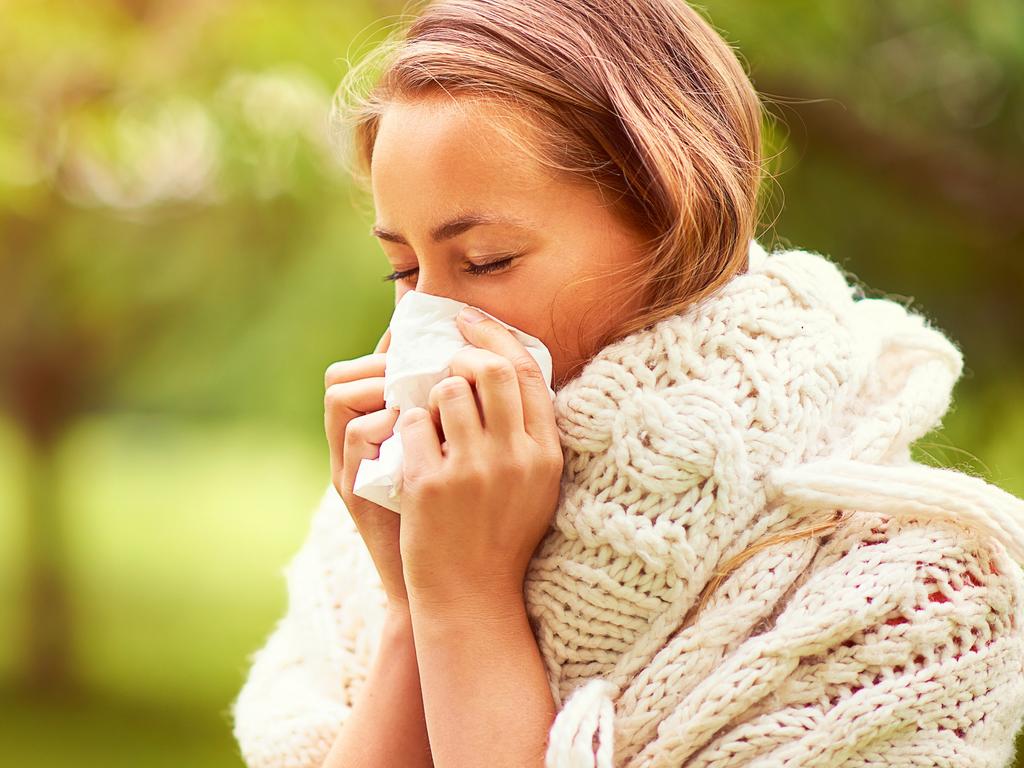Monash team discovers how ‘bad’ antibodies trigger allergic reaction
There’s a new discovery relating to the reason some people can’t stop sneezing from pollen, break out in hives from peanuts or swell up from a bee sting.
Victoria
Don't miss out on the headlines from Victoria. Followed categories will be added to My News.
Perhaps it is fitting that from a city dubbed the allergy capital of the world comes a major breakthrough by Melbourne scientists in understanding how allergies develop.
What the Monash University team has revealed for the first time is that protective, or good antibodies, which guard against allergic reactions are still present in people suffering from allergies, but not in high enough numbers to protect them properly.
This discovery means that potentially all allergies in the future may be treated by boosting what nature has already provided: good antibodies that grab allergens in a headlock to stop the immune response from over reacting and unleashing allergic reactions such as hives, rash and anaphylaxis.
The team, led by Dr Craig McKenzie of the Monash School of Translational Medicine, is the first to have found that these protective antibodies, made from specialised cells known as B cells, are always present.

“We just need to find out a way of boosting what’s already there in order to generate tolerance to an allergen,” he said.
Dr McKenzie said existing allergen immunotherapy, where patients are gradually exposed to the allergen that is making them sick, can work well.
“The issue is that it doesn’t work for everyone,” he said. “Another is that the allergen immunotherapy itself can trigger the allergic symptoms, so we really need to improve them.”
His team turned to Mother Nature for answers.
Investigating allergens in bee venom, the scientists found an interplay between two types of antibodies and how they engage with an incoming allergen from a bee sting.
Dr McKenzie said they found a common antibody type, known as IgG, that quietly neutralises allergens by surrounding them in a sort of headlock while in contrast, IgE antibodies ‘overreact’, unleashing allergic reactions.
“We used to think that people with bee venom allergies simply didn’t create enough of the ‘good’ IgG antibodies,” Dr McKenzie said. “What we found was that they do have them, but that they need even more than was previously thought necessary. Crucially, they need to outnumber IgE antibodies.”

He said the research provided a better appreciation for just how fundamentally similar allergic diseases arise in different people.
“Whether it’s an allergic disease to house dust mite, pollens, peanuts, or bee venom, there are underlying similarities that suggest to us that if we can figure out how best to treat one allergic disease, we may very well be able to treat all of them,” Dr McKenzie said.
He said the team focused on bee venom because it can induce one of the most serious and life-threatening anaphylactic responses.
Dr McKenzie said several factors influence someone’s likelihood of generating an allergy.
“There can be various genetic predispositions, different exposure times. For example, we know if you’re exposed to allergens very early on in life, as a baby, you’re much more likely to be protected from developing allergies later on,” he said.
“There’s also the timing of the exposure. So if you happen to have a viral infection at the same time as breathing in lots of pollen, then there may be an influence on promoting allergic responses at the same time. There’s also repeated exposure.
“What’s at play is the balance between two immune responses, one that causes allergies, and one that protects us against them.”
The research was published in the Journal of Allergy and Clinical Immunology.
More Coverage
Originally published as Monash team discovers how ‘bad’ antibodies trigger allergic reaction








